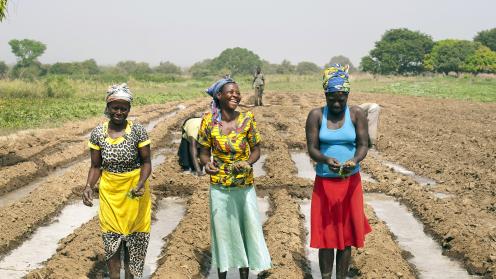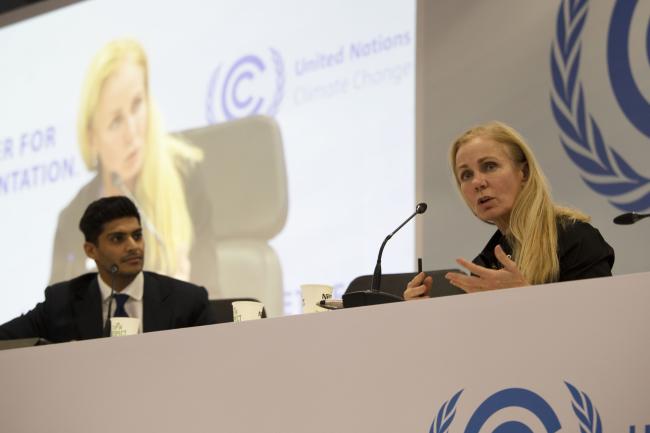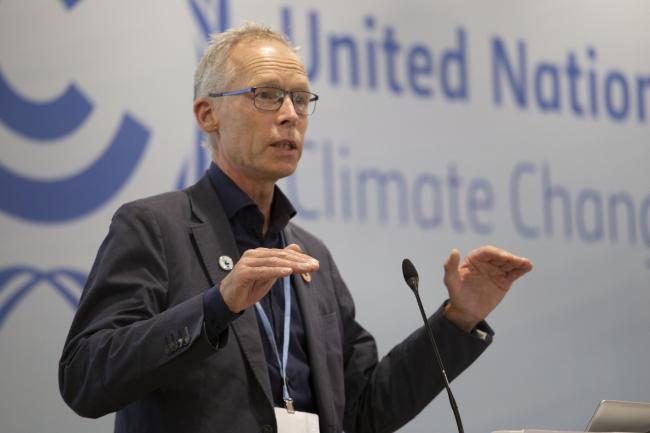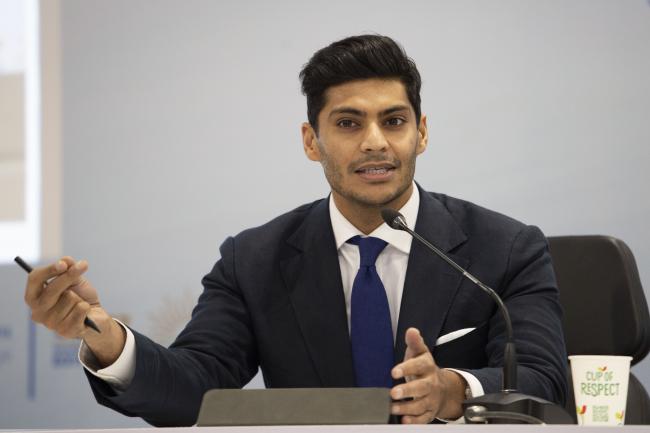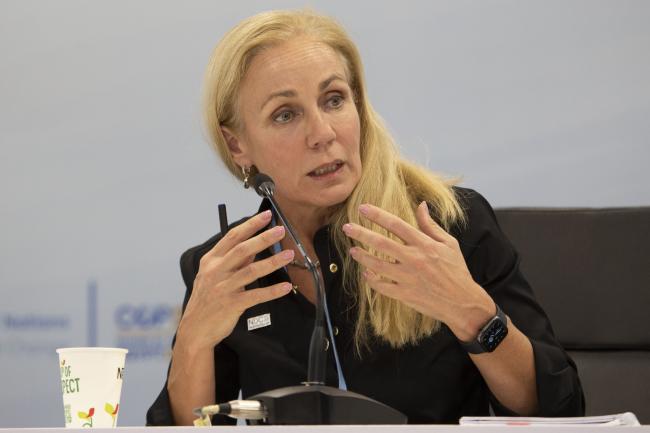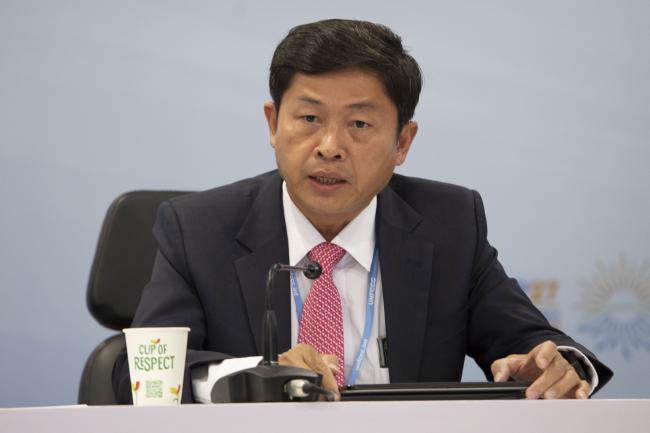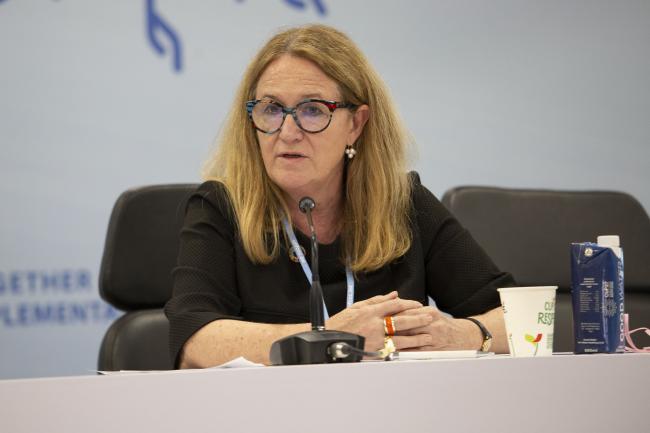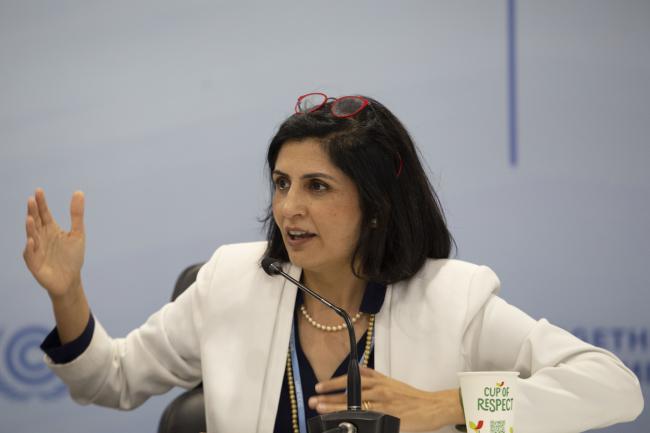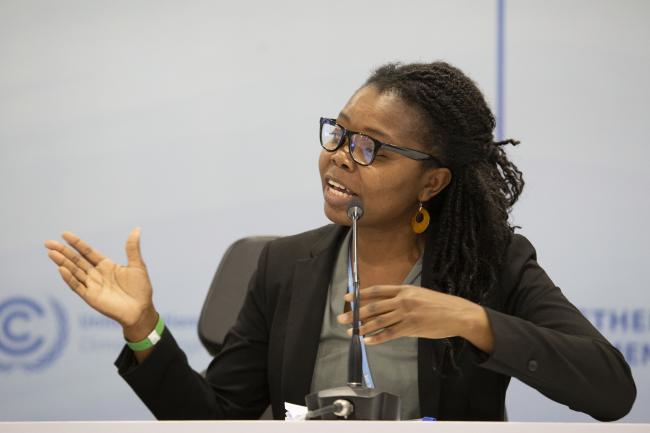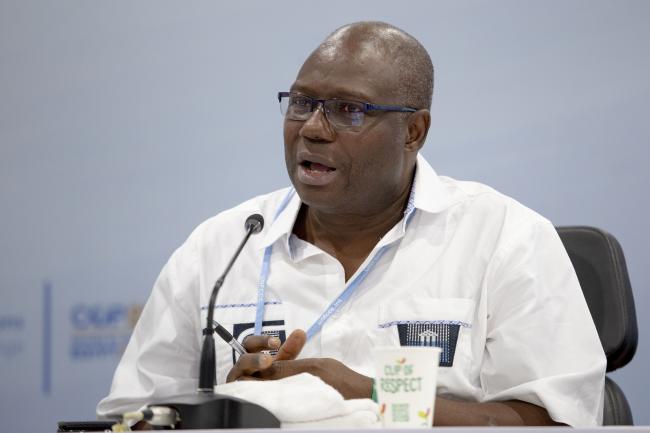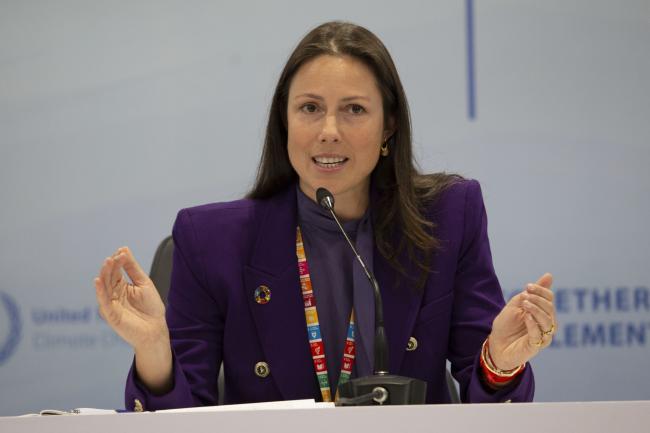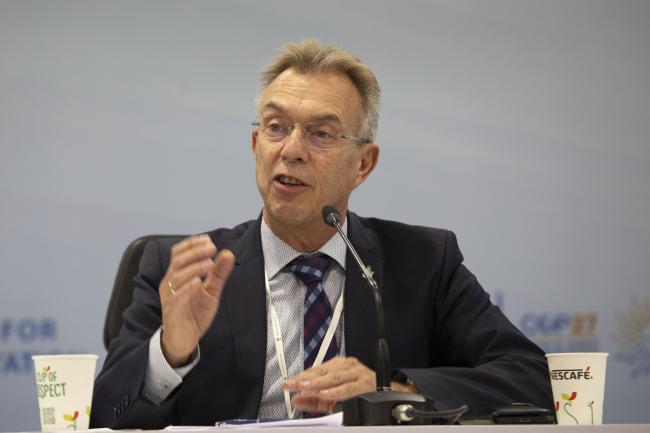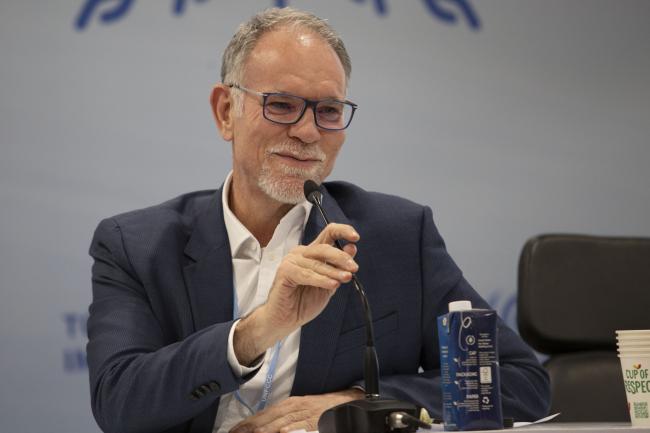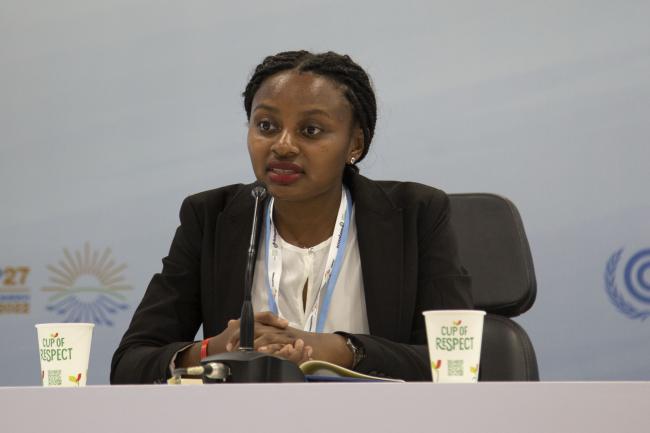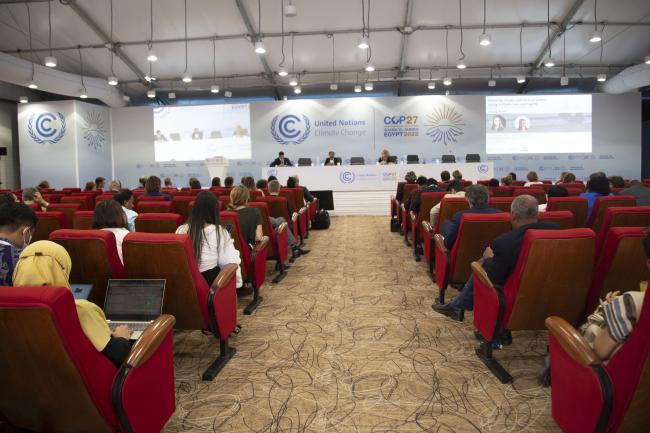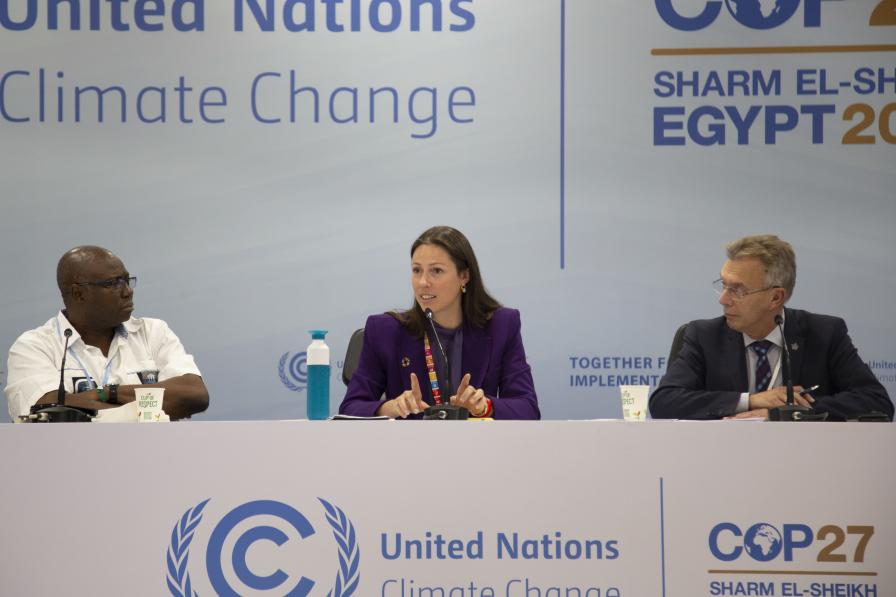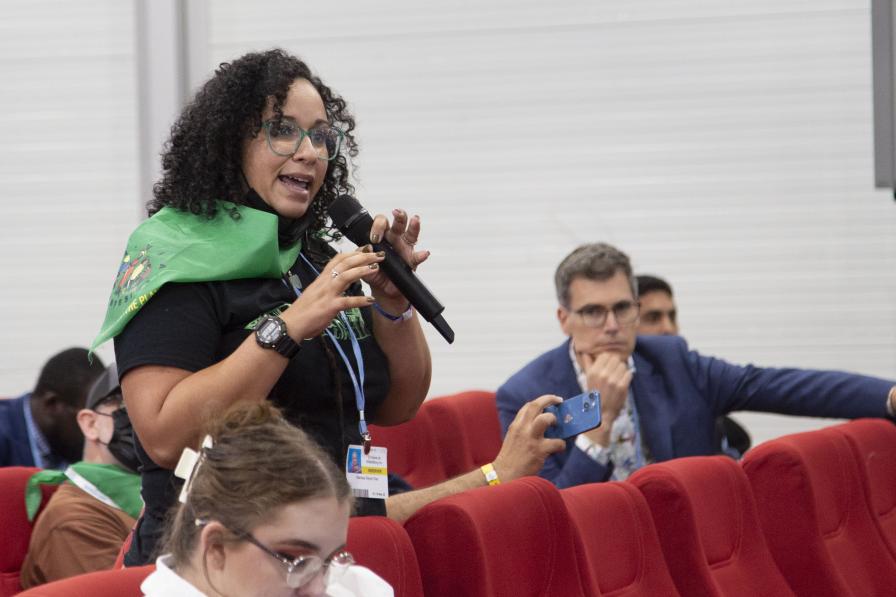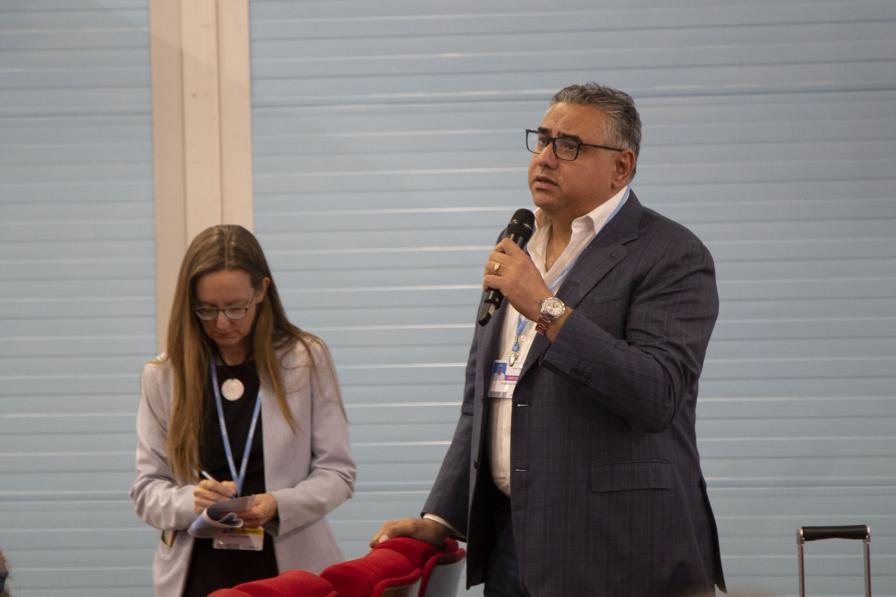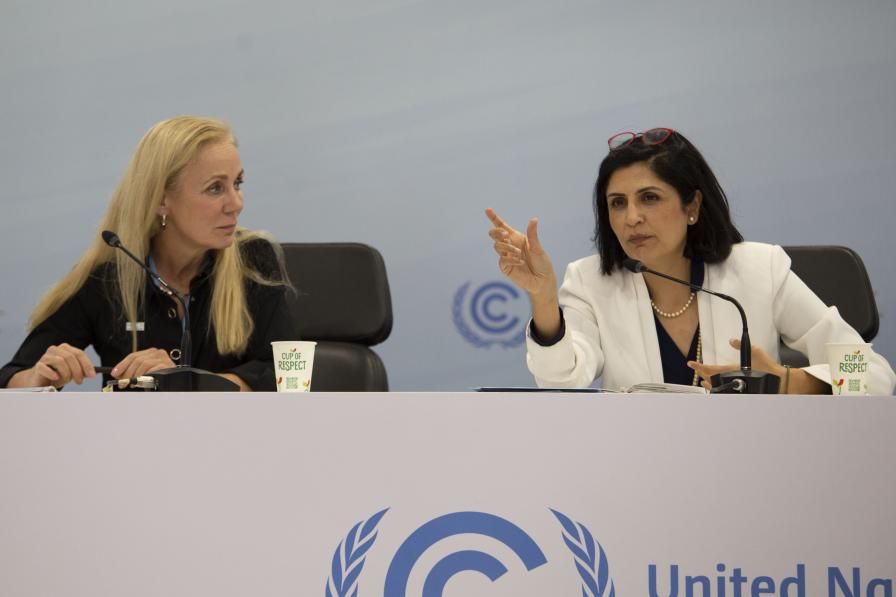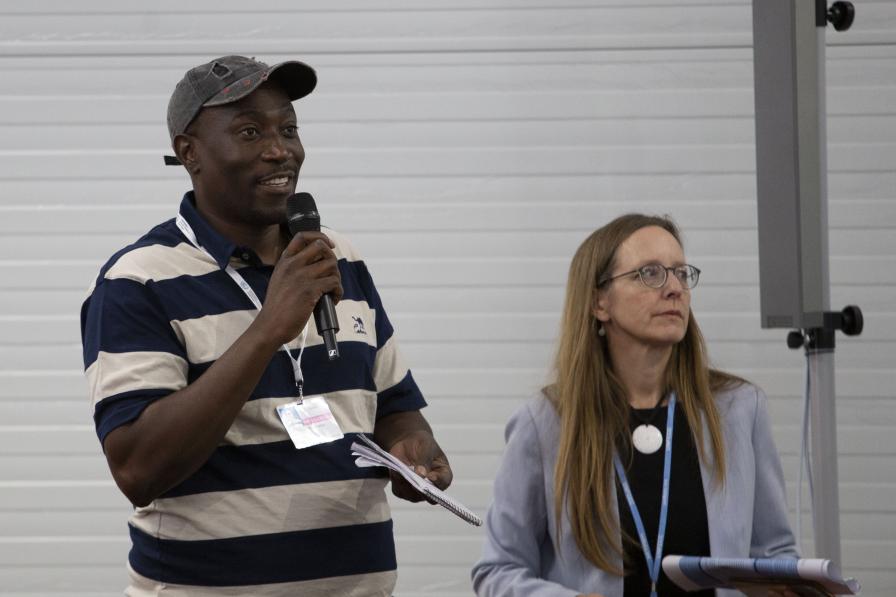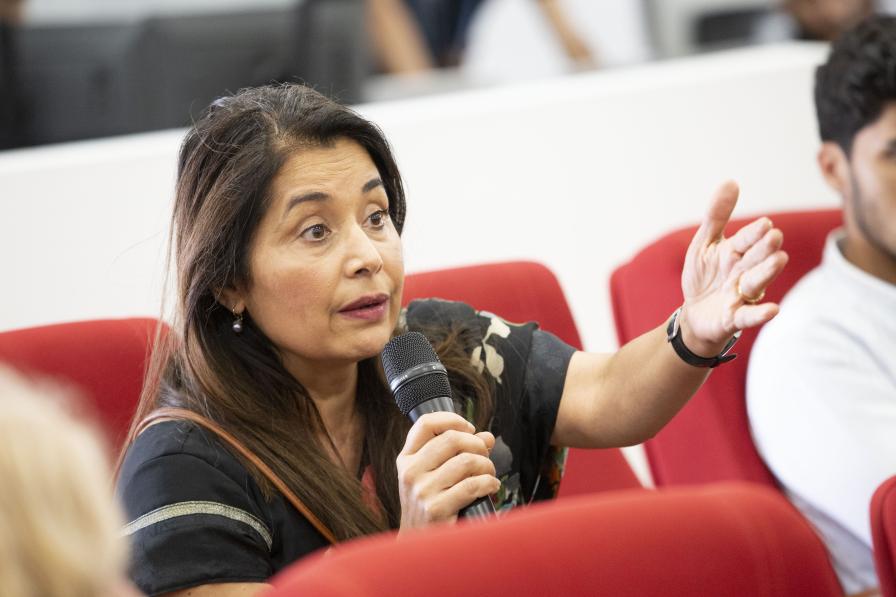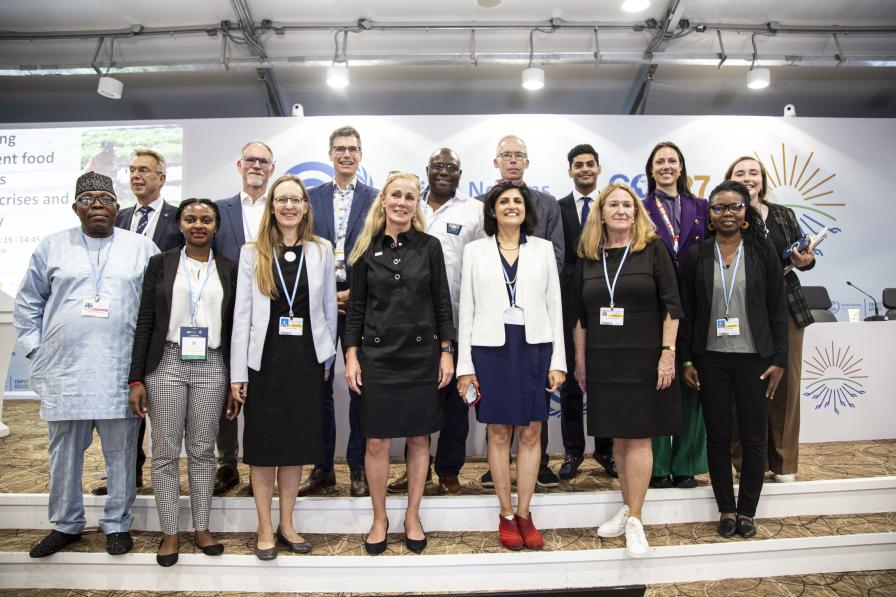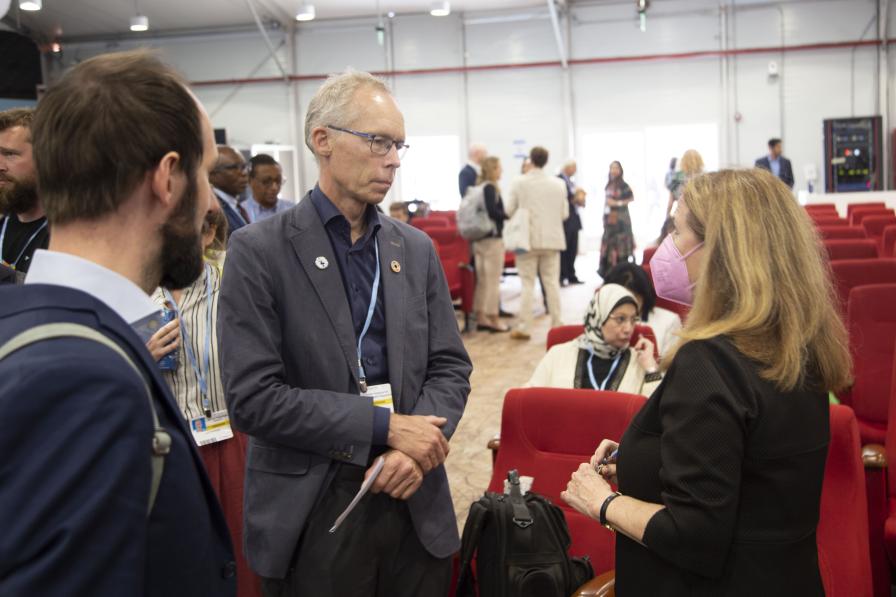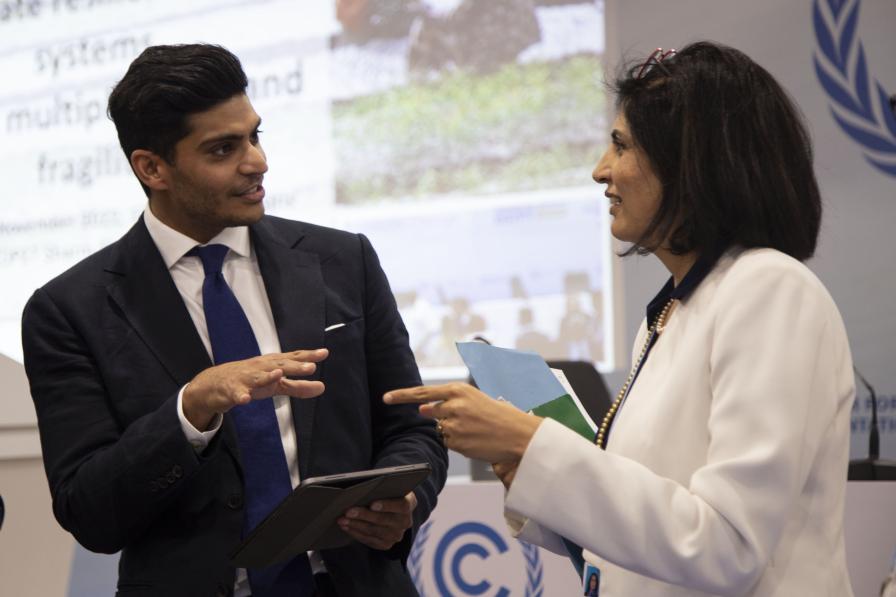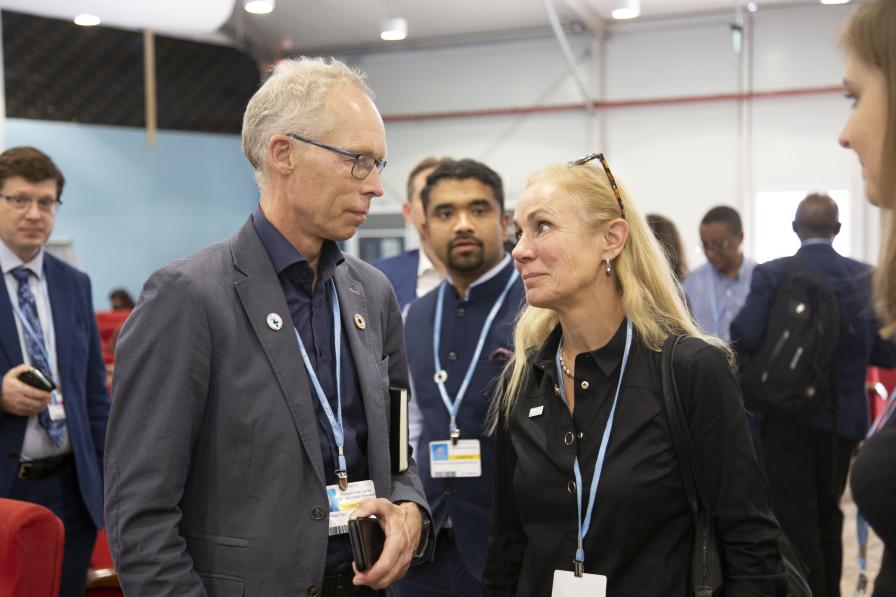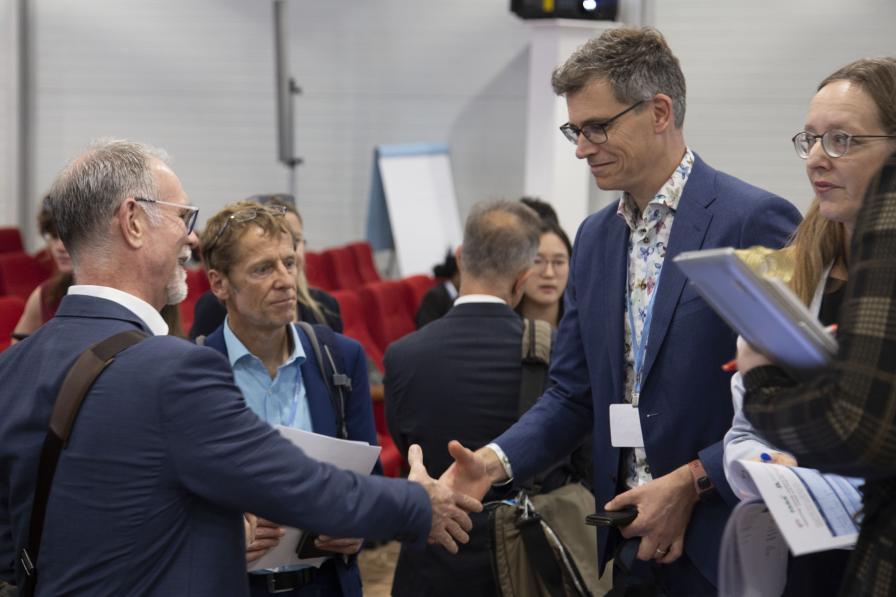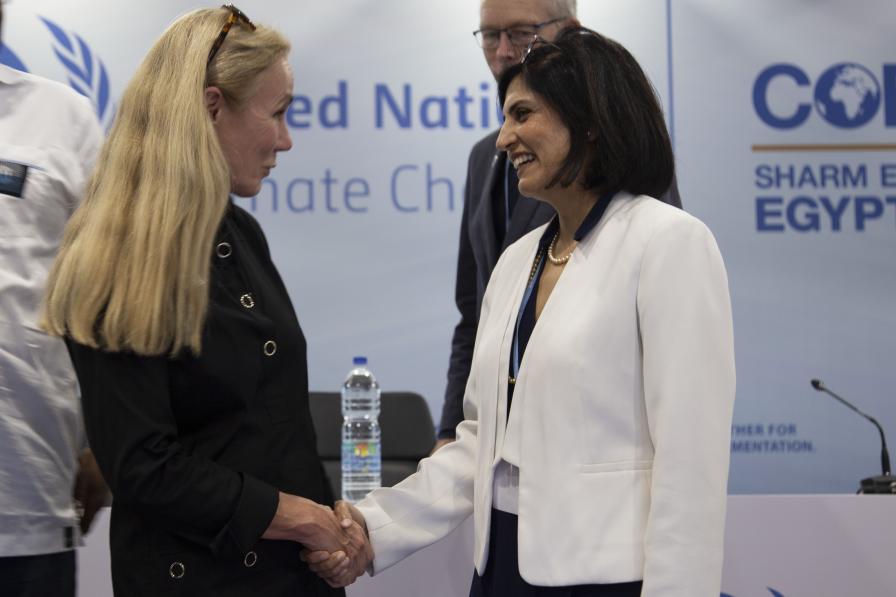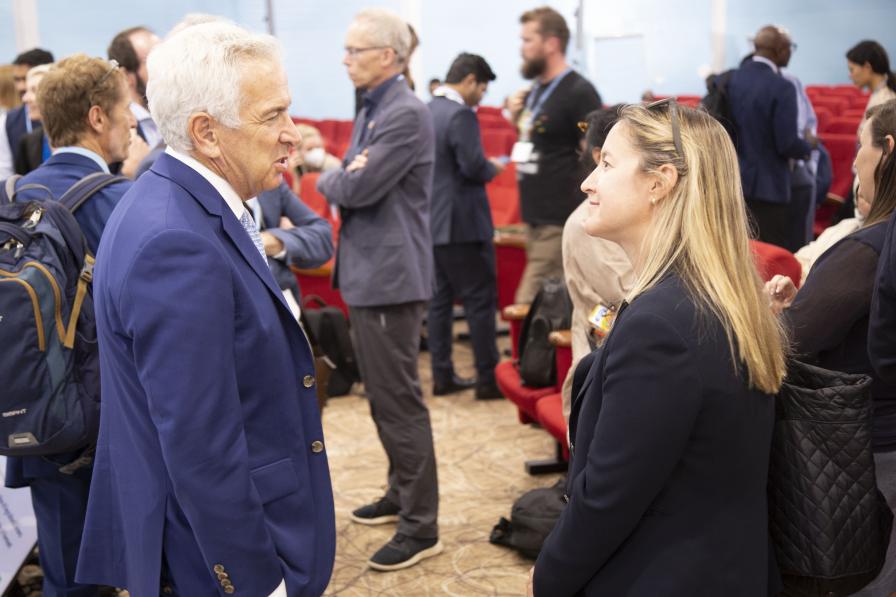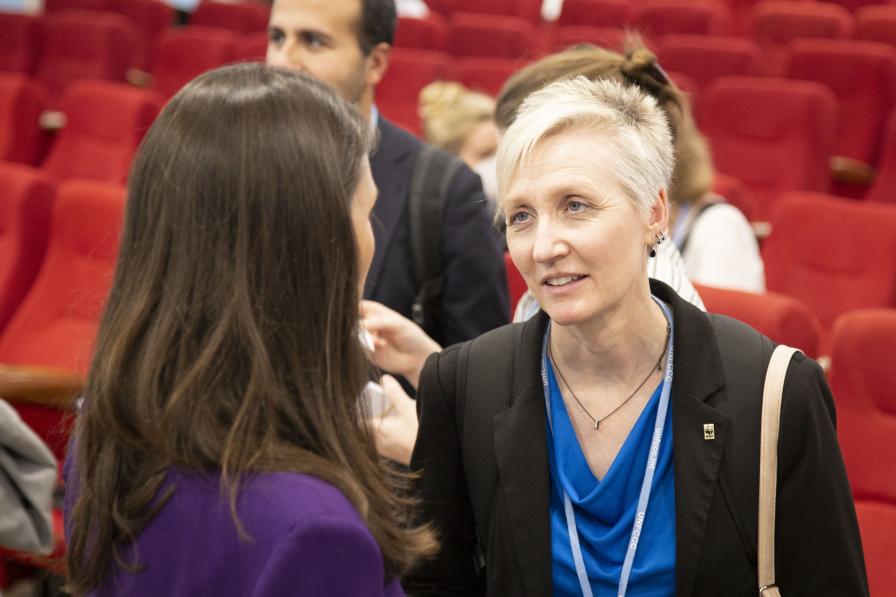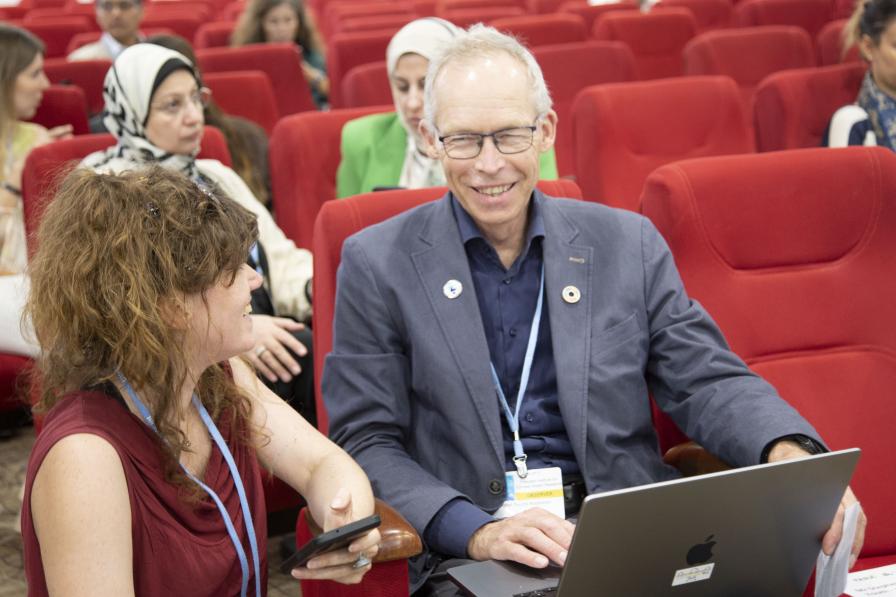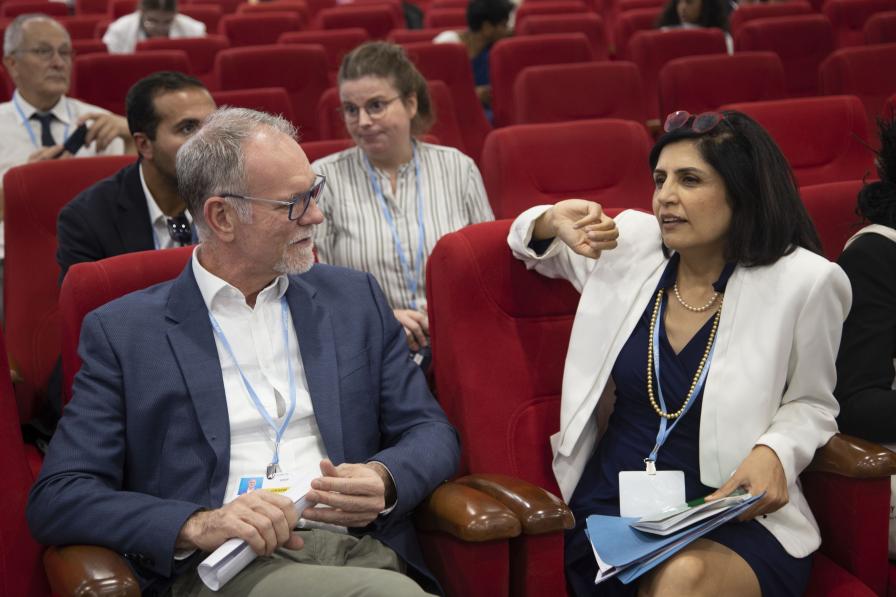About
The war in Ukraine and the pandemic have shown that global supply chains are weak, and when they break, they do so at the expense of the poorest populations. This calls for strategies that address the connections between food systems, poverty, inequality, climate change, and other issues, attendees of a side event heard.
Food systems are beset by multiple, compounding crises that threaten their resilience. This event gathered experts and policy leaders to discuss the cutting-edge scientific research and medium- and long-term financing needed to address conflict, economic pressures, and insect and disease shocks that exacerbate hunger, poverty, and unequal access to healthy diets.
Keynote speaker Johan Rockström, Potsdam Institute for Climate Impact Research, opened the event by emphasizing that the global food system has broken under the weight of four interconnected crises: climate change, the Russia-Ukraine war, ecological stress, and the pandemic. Rockström called for an “agricultural revolution” approach that integrates “adaptation and mitigation into a resilience framework for agricultural development.”
Moderator Qasa Alom, BBC, opened the first panel by offering the example of a woman he met in Zambia who makes and sells potato chips to farmers. Emphasizing the need to focus on “real people, real problems, real stories,” Alom noted that global crises have forced her to raise her prices numerous times, which threatens the sustainability of her business.
Panelist Kitty van der Heijden, Ministry of Foreign Affairs, the Netherlands, urged a “holistic approach” to development that addresses the connections between food systems, immigration, poverty, inequality, and other problems over the long term, rather than in three-year, project-based cycles.
Sok Silo, CARD, Cambodia, underscored the importance of social assistance programmes to help the victims of natural catastrophes, such as recent flooding in his country, while taking into account “the wider picture” to see how food systems are impacted by climate change, inflation, and other problems.
Ingrid-Gabriela Hoven, GIZ, highlighted the need for financing, data, and long-term thinking in order to transform food and water systems in ways that promote climate resilience. Hoven emphasized the need to integrate such an approach into National Adaptation Plans (NAP).
Jyotsna Puri, IFAD, stressed financing as the key bottleneck in transforming food systems. Puri underscored three key dimensions for mobilizing private-sector action: measurability and accountability; scaling up small-scale, resilient farming; and de-risking private investments in local farming, which IFAD is doing, in part, by increasing liquidity in development banks.
Answering audience questions following the first panel, panelists emphasized the need for “adaptive learning” in development projects over the long term and “whole of society approaches” that engage with local knowledge. Hoven also stressed the need to focus on water resources, including equality in water management.
After the first panel, Rebecca Sarku, University of Leeds, described her research project that integrates local knowledge with scientific data to provide weather forecasts and other information to small farmers. The project, which has produced a smartphone application, has required capacity building, including teaching farmers how to use phones and mobile applications, and trust building through face-to-face dialogue.
Opening the second panel, Yemi Akinbamijo, FARA, underscored that scientific research is vital for transforming food systems. Akinbamijo stressed that “at the end of the day, what will move the needle is a function of how much science we have in the system.”
Viktoria de Bourbon de Parme, WBA, highlighted the need to push global food corporations to deliver equitable food systems, which requires independent analysis that holds the private sector accountable. De Bourbon de Parme noted that her organization has produced an accountability index by integrating existing standards, and that this metric can be used in different countries and regions.
Martin Kropff, CGIAR, emphasized the need for diversity in food systems, as well as regional integrated initiatives based on bringing together research across different scientific disciplines.
João Campari, WWF International, closed the panel by highlighting how the war in Ukraine and the pandemic have shown that global supply chains are weak, and when they break “they break at the expense of the poorest populations.” He called for creating “national and subnational roadmaps for action.”
In response to questions, panelists noted the need for better data and simulation models, more engagement with farmers, and more innovation to diversify food systems.
Closing the event, Hoven reiterated key messages, including the need for: transitioning food systems in a “way that continues to serve people”; international cooperation and holistic approaches across all sectors; metrics and evidence-based planning; and empowering local communities to be “agents of change.”
Invited to have the last word, Samantha Natumanya, Fairventures Worldwide, urged holding stakeholders and political leaders accountable to make sure they keep youth, rural communities, women, and the most vulnerable populations at the center of action to transform food systems.
Organizers: Deutsche Gesellschaft für Internationale Zusammenarbeit (GIZ), Forum for Agricultural Research in Africa (FARA), and Wageningen University & Research
Contact: Stephanie Heiland | stephanie.heiland@giz.de
For more information: https://www.giz.de/
To receive free coverage of global environmental events delivered to your inbox, subscribe to the ENB Update newsletter.
